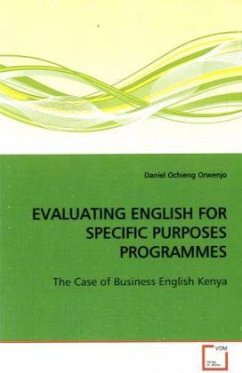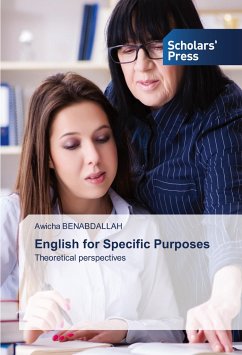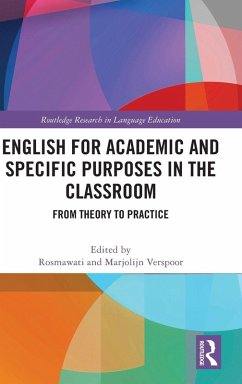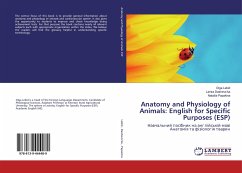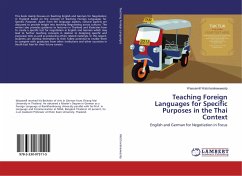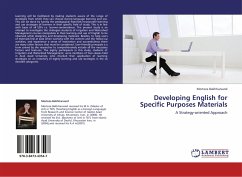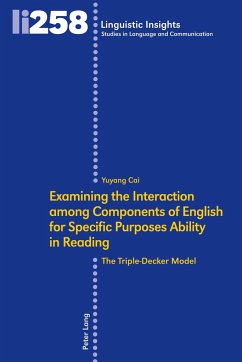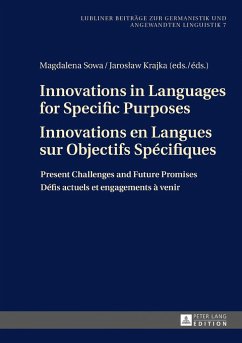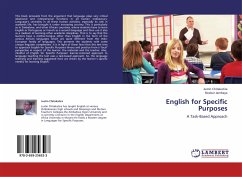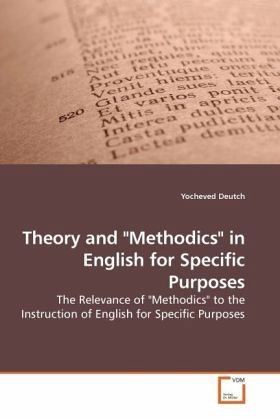
Theory and "Methodics" in English for Specific Purposes
The Relevance of "Methodics" to the Instruction of English for Specific Purposes
Versandkostenfrei!
Versandfertig in 6-10 Tagen
52,99 €
inkl. MwSt.

PAYBACK Punkte
26 °P sammeln!
English for Specific Purposes (ESP) has been almost invariably described as a circumstantial evolvement of general purpose English (GPE). This viewpoint has been clearly reflected in the overriding emphasis that ESP research has placed on practical aspects. This book highlights the theoretical aspects which bear directly on the concept of specificity in language instruction. ESP is thus portrayed as an approach in which specificity is theoretically, not only practically, founded. The study follows in Halliday et al.'s (1964) footsteps in search for a theory of "Methodics" where "pedagogical te...
English for Specific Purposes (ESP) has been almost invariably described as a circumstantial evolvement of general purpose English (GPE). This viewpoint has been clearly reflected in the overriding emphasis that ESP research has placed on practical aspects. This book highlights the theoretical aspects which bear directly on the concept of specificity in language instruction. ESP is thus portrayed as an approach in which specificity is theoretically, not only practically, founded. The study follows in Halliday et al.'s (1964) footsteps in search for a theory of "Methodics" where "pedagogical techniques and linguistic theory cross-fertilize each other" (Halliday et al. 1964:200). It explores the interrelationship between the target language and the cognitive activities involved in its acquisition and performance; between linguistic and pedagogical aspects. Legal English has served as a case study for the implementation of "Methodics" in ESP instruction. The theoretical analysis of Legal English and the needs analysis of Israeli law students have provided the framework for developing guidelines for a legal English course syllabus.



